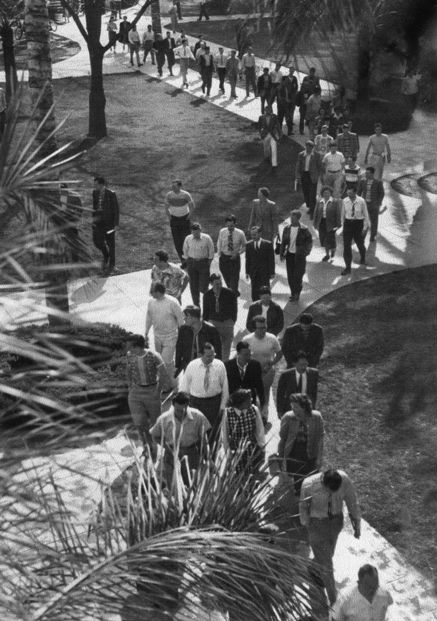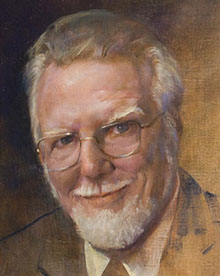In the 1960s, as a young internist just starting practice, I witnessed the gentle arrival of Medicare, a benign shower of blessing upon the neediest. We still made housecalls back then. I gave new patients 2 hours for a complete workup, and charged $13. I have lived to see HMOs and 3rd party insurances burgeon and assume authority over medical care, even to determine what "quality medicine" is (what is decreed as "quality" medicine is, were I the patient, reason to sue), and now the GovernmentCare tsunami is overwhelming the land. Now a patient (recently I’ve become one) can’t even talk to his doctor on the phone, or for more than 7 minutes in person, at $188. It would be an odd old doctor who wouldn’t have a lot to say about all that too. I do, and will, in odd ways and places hereabouts.
When young and beginning to write, I was enthralled with a particular literary and personal style, and strove to emulate it, the kind with an aloof disdain breathed through a certain smug wisdom only select old men achieve. I achieved it early. A precocious curmudgeon is what I became, and cheerfully. In inflexible old age I’m stuck with it, but not so sure about it. That persona no longer feels right when, as a doctor, I am talking about patients and medicine, things with life that change a man in a year more than Evolution can change a fruit fly in an eon.
A very old man now, I’m a totally different person than I was as a clueless nineteen-year-old freshman taking my first scared look at a cadaver. I aspired to be a certified curmudgeon, that much I thought I knew. Now curmudgeonry seems a cocoon I’m finally ready, and eager, to slough, but can’t quite. After a lifetime, and a life, in medicine, and decades of planning to write about it, I don’t feel ready, yet. About everything else I am quick to blab, but not medicine. Of experiences and gripes, yes. But of medicine as a field, a philosophy, a way of life, a ministration, a giving; of real people; of following Christ as He practiced medicine, not quite.
So I'm left with a collection of stories and rants I don't quite know what to do with. My book never got written, nor was anything submitted to the New Yorker. I guess I’ll go ahead and publish a few here on my new site, -- the only place on earth or the web they can be found.
This site is for my personal ventilations based on what I have seen during my very long life. It's not a blog, which saves me from flaming comments, of which the most aggrieved might well be my own. Back 40 years ago when my main reason for writing the piece would be to have it published in some major magazine, I would have ended the anecdote at the most arresting, dramatic point, as is taught in Creative Writing class. But I now realize that drama is actually anticlimax. My patient experiences were real life, not entertainment, and their point is what I myself learned from dealing with the realities, my failures and the patient's real suffering, real death.
I'm not a novelist and rather eschew fiction, but confess to embellishing some of my "essays" with dreamed-up events, conversations, and twists. But not my medical stories. The anecdotes herein included are as they happened, or at least as I remember it from so long ago. And to these I append thoughtful look-back epilogues written more than 50 years after the fact, more meaningful to me than the story itself. I wouldn't have appended them a half-century ago. The New Yorker, or even the Alumni Journal wouldn't publish them, but I will.

As a freshman medical student, I took this photograph in 1948 from the 2nd story of the Anatomy Building (before buildings were named for Big Doners). Mostly in white shirts and ties, standard dress in those days, with neither backpack nor bottled water, our class has just come from chapel service at Burden Hall.
Now Loma Linda University School of Medicine, it was The College of Medical Evangelists in my day. Quaint name, that, and long gone. But embarrassed by it, and what it proclaimed, I am not. Deep down I never was. What's in a name?
We were graduated in 1952 after 4 years of medical school but granted degrees the year of licensure, so ours is the class of 1953A (2 graduating classes that year). In 2018 we, the 4-5 remaining, and able, of the 100 in the class, will have our 66th anniversary, at -- are your ready for this? I'm not! -- an Assisted Care facility dining room! One table ought to be adequate. I've never heard of the like! My old roommate and his wife (I was best man at their wedding long ago) and the class clown now live there and will be hosts!

My dad graduated from medical school, same school as I would 27 years later, in 1925. He was a general practitioner for forty years. His office, his patients (some paid him, some didn’t), the housecalls, those were my earliest memories.
I graduated from medicine when I was 23. Then on into ten years in residencies (internal medicine and pathology), research fellowship, and specialty military experience, and the rest in teaching and practice. I am now 88. Medicine is about all I’ve known.
Mentors, the greatest professors at the greatest universities; interaction with bright fellow students and fellow residents; teaching and supervising bright students and residents, increasingly from India and then the middle east; experiences at hospitals huge and small; brilliant diagnoses made and missed; being deposed by lawyers; patients young and patients senile, patients convinced they were dying but weren’t and patients actually dying and denying or relishing it. I expected such experiences. Early on I began collecting them for the book I would write, or for submission to the New Yorker. That magazine was very popular in those day and I aspired to submit "short stories" and be published.
In my active career I expected to be occupied by patients. I did not expect to be consumed by politics, agencies, paperwork, summons. I expected to answer to patients and their families, to my conscience, my God, not to bureaus, agencies, lawyers, courts, activists, reporters, insurance companies, governments.

